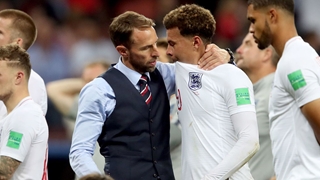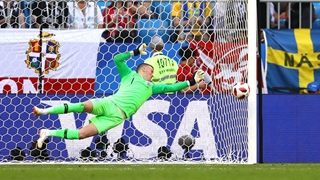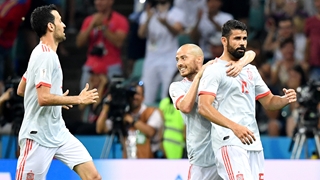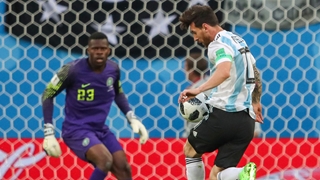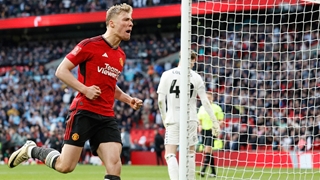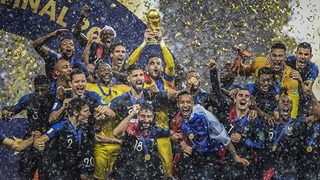
French tactical variety
Looking back, it can feel like a trick of the mind that France’s successful World Cup campaign began with head coach Didier Deschamps fending off questions about lacking a clear playing style.
Choosing to respond in action rather than words, France set about dispatching each obstacle in their path using the most appropriate style and system for the given occasion. As a result, not only did Les Bleus succeed in leaving Russia with the most cherished trophy in the game, but also in proving that an adaptable and flexible playing approach is a football identity in its own right.
Set-piece specialism
France’s first two goals in the World Cup final came as a result of set-pieces – an aspect of the game that proved fruitful for many teams during Russia 2018.
England were one of those who benefited, with Gareth Southgate’s side utilising a variety of effective set-plays on their way to the semi-finals. Both direct deliveries, notably from Kieran Trippier, and innovative routines underlined the benefits of attention to detail in preparation and execution.
With chances to penetrate compact defences often at a premium, attacking set-plays represented moments of goalscoring opportunity. Given the returns on offer, the importance of dedicating time and resource to developing specialist set-piece takers will no doubt continue to gain more importance in the future.
VAR and the future defender
Defending in and around the penalty area was routinely the arena for VAR debate. With added scrutiny on player actions, infringements by defenders were more regularly exposed and raise questions for the development of future defenders.
Intelligent ways to intercept, block and pinch possession without being dragged into a physical fight will be of high value in future tournaments as will the ability to track, mark and compete for the ball without mistake.
Collective defending tactics to reduce the pressure on individual defenders may also see greater prominence.
Midfield control: in possession
There are many reasons Luka Modric left the World Cup Final in Moscow clutching the Golden Ball - the trophy for the tournament’s outstanding player. But perhaps the most significant was his mercurial ability to bend the rhythm and flow of a game to his wishes.
With games in the latter stages of tournaments often in a state of constant flux, a midfield controller, such as the Croatian captain and Real Madrid man, can bring a conductor’s touch in organising the disorganised.
Finding calmness and control amidst the chaos is, however, no easy task. How to produce more players with such gifts remains a valid discussion for coaches at all levels.
Midfield control: out of possession
Another diminutive midfield player who left a large impression on the tournament was France midfielder N’Golo Kante. Operating in the shadows and in silence in front of the French back four, the untrained eye could easily overlook the Chelsea midfielder’s diligent contribution.
Winning teams, however, are constructed by combining cohesive and complementary parts – some of which are less glamorous than others.
The 27-year-old’s indelible mark on the tournament did, however, help move some of the spotlight towards those with the dedication and discipline to slide, screen and sense danger quicker than anyone else.
Physical and psychological resilience
A signature of world champions is the ability to cope with both the physical and psychological pressure that comes with progress to the final days of a tournament.
During the knockout stages, coping with gruelling schedules and, quite often, limited preparation and recovery time are, arguably, equal in importance as adapting to tactics and styles of play.
To allow footballing brilliance to decorate tournaments, robust and resilient physical and psychological skills must be in place - areas of the game widely covered on FA coaching courses at levels four and five and key areas for all coaches to consider.
Learn more about FA coaching courses or find out how to start your own coaching pathway today.




